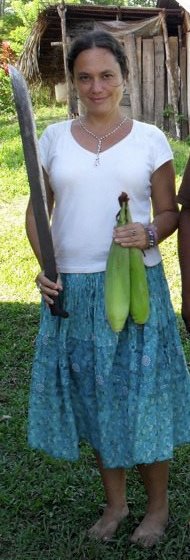Good Men Grow Corn
Embodied Ecological Heritage and Health in a Belizean Mopan Community
 Here is the first “official” version of my attempt to distill and relay my research in Belize: the doctoral dissertation. This may be of use to those of you who came to an event and left wanting to find out more about how the “embodied ecological heritage” framework came to be. It also may be of use to those of you working and/or conducting research in Belize, or those of you interested in thinking about how health is connected to ecological practice and heritage. It also may be of use to insomniacs, although at least the first few pages of each chapter should keep you awake. The plan is this research will be available, in more and less detailed versions and pieces, as various books and articles and events in the coming months and years. Reading this first iteration will, hopefully, inspire rather than discourage you to buy the book. If you are interested to know more about a particular chapter, event or research trajectory, please feel free to contact me directly. Thank you all for your interest.
Here is the first “official” version of my attempt to distill and relay my research in Belize: the doctoral dissertation. This may be of use to those of you who came to an event and left wanting to find out more about how the “embodied ecological heritage” framework came to be. It also may be of use to those of you working and/or conducting research in Belize, or those of you interested in thinking about how health is connected to ecological practice and heritage. It also may be of use to insomniacs, although at least the first few pages of each chapter should keep you awake. The plan is this research will be available, in more and less detailed versions and pieces, as various books and articles and events in the coming months and years. Reading this first iteration will, hopefully, inspire rather than discourage you to buy the book. If you are interested to know more about a particular chapter, event or research trajectory, please feel free to contact me directly. Thank you all for your interest.
Kristina Baines
ABSTRACT
Recent developments in land rights and land use in the Toledo district, Belize has generated anthropological and activist interest surrounding traditional ecological knowledge and practice, and the role of heritage in communities. This study explores the connection between ecological knowledge and practices, and the concurrent construction of heritage, and community health and wellness, broadly defined. Developing and using the concept of “embodied ecological heritage,” this dissertation takes a phenomenological approach to understanding the convergence of ecological heritage and health in multiple realms of everyday life, arguing that lived experience of participating in “traditional” practices is fundamentally connected to wellness in the Mopan community of Santa Cruz.
Using the results of ethnographic research using multiple methodologies across 76 households over a period of 11 months, this dissertation presents a detailed account of how Mopan Maya participants view ecological skill and knowledge as critical to being and living well, arguing that social factors, such as work and food choices, have an effect on wellness. The research contributes to a growing number of studies linking changes in the body and overall health status to everyday practices within communities. Outlining how certain knowledge and particular practices, such as exchanging labor and making baskets, become prioritized as heritage through both their conceptualization and deployment, the analysis centers on individual bodies as the foci of skill, sensory experience and change. The timely nature of making these connections explicit is discussed in light of ongoing “development” in Maya communities and beyond, with an illumination of how changing land use patterns have far-reaching effects on wellness from multiple perspectives; individual, social, ecological and political, and concluding that a consideration of wellness can benefit from looking at the processes involved in heritage construction as it relates to ecological practice.
—
Read the entire draft by clicking here:

